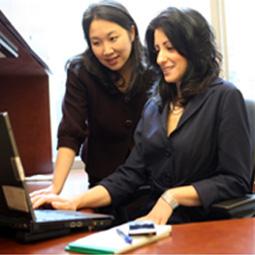Insider Secrets From A Human Resources Veteran
Published: Dec 28, 2011

Going to school and getting your degree isn't always enough when applying for jobs in your desired profession. The degree won't keep you from getting lost on the way to your first big job interview nor will it prepare you for when you arrive late and flustered and offer your interviewer a sweaty handshake. These are the mistakes that will cost people their jobs.
As a result, 60-percent of recent college graduates do not have full-time jobs in their fields of study, according to a spring CNN Money report citing the job-placement firm Adecco Group. Patricia D. Sadar, a 20-year veteran of Human Resources Management and author of Congratulations…You Aced the Interview and Congratulations…You’re Hired (www.congratsbooks.com) for recent college graduates, believes she knows why.
Sadar has seen it all during her lengthy career and believes that students are not preparing properly for what lies behind the degree. “Students and parents alike spend their valuable time and hard-earned money to get into the right school and earn their college degree,” she said. “It seems as though they forget the big picture – landing the job.”
She is now taking the time to give recent college graduates the advice they need to land the job of their dreams. She has created Cliff Notes' style books aimed at answering the burning questions, break through myths, and point students towards the career fast lane. The books are designed to be read in an hour, providing users with an opportunity to gain new knowledge and instantly put it to use. Making it even quicker for job seekers, Sadar has offered some tips to help make their path to a new job just a little easier:
- Tailor your resumé to the job: Recruiters often simply scan resumés, so be sure the experience and skills being sought are easy to spot, and the same information is repeated in your cover letter. Include a professional summary, competencies, strengths and accomplishments all focused on the position for which you’re applying.
- Prepare for the interview – what you do before, during and after counts: Know how to get there and allow extra time so you don’t arrive late. Don’t use strong cologne or tobacco products, and don’t drink coffee beforehand, all of which can be smelly turn-offs. Do pop a breath mint – not chewing gum, which has no place in an interview. If your palms are sweaty, wipe your hand discreetly before giving a firm handshake. Follow up with a thank-you note to the interviewer within 24 hours.
- Be truthful when asked about weaknesses: People often avoid these questions or answer by presenting what they consider to be a strength as a weakness, such as “I’m a workaholic” or “I’m a perfectionist.” The interviewer wants to know if you can recognize your weaknesses and how you’re working on them, or whether you can admit mistakes and learn from them. Be prepared to honestly discuss one weakness and one past mistake.
- Ask questions, but not about salary, benefits, sick or vacation time: Go prepared to ask three to five questions about the company, the department or the position. You might ask the interviewer to describe the ideal candidate for the job, what he or she most enjoys about working for the company, or what the company’s biggest challenges will be in the coming year.
- Remember, mealtime interviews are not about the food: Order a conservatively priced meal that doesn’t have a strong smell and that you can eat without making a mess. Don’t order an alcoholic beverage, even if your interviewer does, and mind your table manners.
- Be courteous to everyone you meet, from the parking lot to the restroom: Don’t underestimate the importance of parking attendants, receptionists and security guards, who often have influence with decision-makers. The person in the elevator or at the lavatory could be the CEO or a potential future boss.
--Jon Minners, Vault.com
